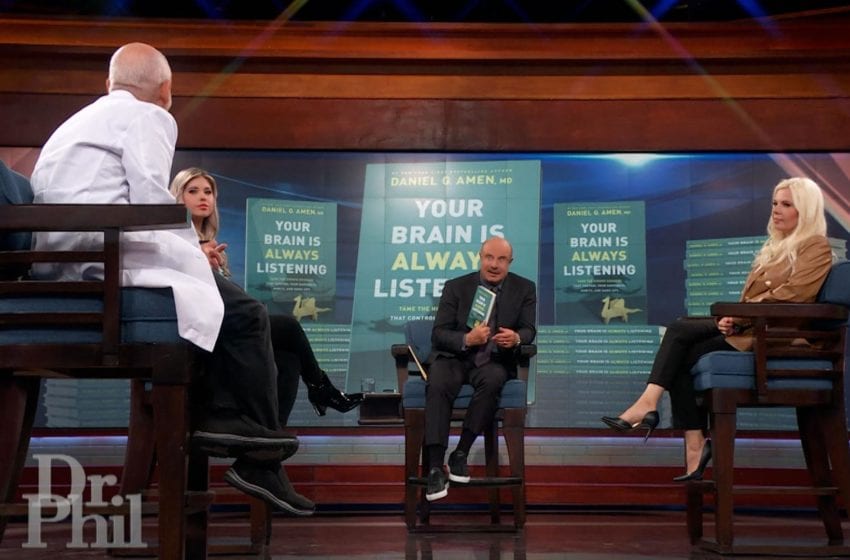Misinformation continues to be a challenge for the vaping industry. After the U.S. Centers for Disease Control and Prevention (CDC) announced that vitamin E acetate in black market marijuana vaping products was the cause e-cigarette or vaping product use-associated lung injury (EVALI) more than a year ago, many media outlets continue to falsely blame nicotine vaping products for the lung illness that was first identified in 2019.

On his Friday episode of the show Dr. Phil, American TV personality Phillip Calvin McGraw, also known as Dr. Phil, wrongly blamed the EVALI lung illness outbreak on vaping nicotine products. Speaking to a guest who stated she only used nicotine vaping products, McGraw said he “was puzzled” by the guest’s understanding that vaping, while not entirely safe, is safer than smoking combustible cigarettes.
“Ventilators, hospitals, deaths … there is lots of news out there on this,” McGraw said. “This isn’t a matter of opinion, it’s a matter of science.” The host then went on to use several news reports wrongly blaming nicotine for EVALI to support his statements. According to Nielsen data, the average daily audience of the Dr. Phil Show is 2.9 million viewers.
Reports of serious illnesses and deaths related to vaping began mounting in summer 2019. By mid-February 2020, the CDC reported more than 2,800 cases of lung injuries requiring hospitalization across all 50 states, and 68 deaths. After nearly six months of falsely claiming nicotine vaping products were the cause of the outbreak, the CDC finally admitted that the cause was illicit THC vaping products and not nicotine vaping products.
By July of 2020, the CDC said that states no longer needed to track lung-related injuries caused by marijuana-based vapor products, partly because cases have dropped. The CDC said it stopped requiring states to report the numbers in February of 2020 after it pinpointed vitamin E acetate as the culprit in THC vaping products that were making people sick, but didn’t make the public announcement until nearly five months later.
McGraw holds a doctorate in clinical psychology, though he ceased renewing his license to practice psychology in 2006, according to Wikipedia. The CDC and U.S. Food and Drug Administration (FDA) now strongly recommend that people avoid use of “e-cigarettes or vaping products containing THC, especially from the illicit market.”
The UK and EU have a different view on e-cigarettes and whether or not combustible tobacco smokers should make the switch. More and more smokers began transitioning over to vapor products after the Public Health England stated that vaping is 95 percent safer than smoking cigarettes. Experts have pointed out that EVALI cases are almost exclusive to the United States and haven’t made a blip on the radar globally. In the UK, there are approx. 3.6 million e-cigarette users with virtually no EVALI cases reported during the media coverage period in 2019 and early 2020.
There were also little to no cases of EVALI in Canada and Mexico, the closest foreign neighbors to the US. “EVALI was largely the result of an unregulated illicit THC vape market in the United States which didn’t follow safe production standards” says Allan Rewak, executive director of Canada-based Vaping Industry Trade Association (VITA) in Nov. of 2020. “Canada’s nicotine vape market was on the final path toward federal regulation at the time, which prevented EVALI from occurring in any significant way north of the border.”
The use of EVALI to spread fear on nicotine vaping in Mexico and in Latin America was particularly crude, dishonest and more intense than in other places, according to Roberto Sussman, senior researcher and lecturer at the National University of Mexico and founder and director of Pro-Vapeo. .
“Up to this day, all officials of the health ministry in Mexico are still blam[ing] nicotine vaping,” says Sussman. “And when you try to engage them, they say, ‘No, no, no. That’s it. Full stop. End of discussion.’ That’s it.” Since EVALI has now been found to be caused by illegal THC vape pens, not nicotine-based e-cigarettes, Sussman says “no one has told Latin America.”
In late 2020, Mexico’s president signed legislation prohibiting the importation, manufacture and distribution of all noncombustible products tobacco (vaping) products, including heat-not-burn products. “Their justification was that we need to protect Mexican youth from EVALI. Given the proximity of the U.S., this epidemic can come to Mexico any time,” says Sussman. “Pure fear-mongering and they’ve refused all debate.”
Brad Jemmett, a former long-time smoker and now general manager for SnowPlus – an innovation based vape company – suggests that the core of what drove the negative media was a localized, US issue.
“Globally, we don’t really see EVALI cases like there were in the US, because EVALI was linked to illicit marijuana vapes, and most specifically the addition of Vitamin E acetate as a thickening agent. Our products on the other hand, are developed and tested to the highest degree, and designed specifically for adult smokers looking to transition out of smoking,” he said. “At SnowPlus, we never have and never will use Vitamin E acetate in any of our products. Through innovation, we’ve aimed to simulate the smoking ritual with vape technology, to provide a less harmful alternative compared to smoking cigarettes.”

